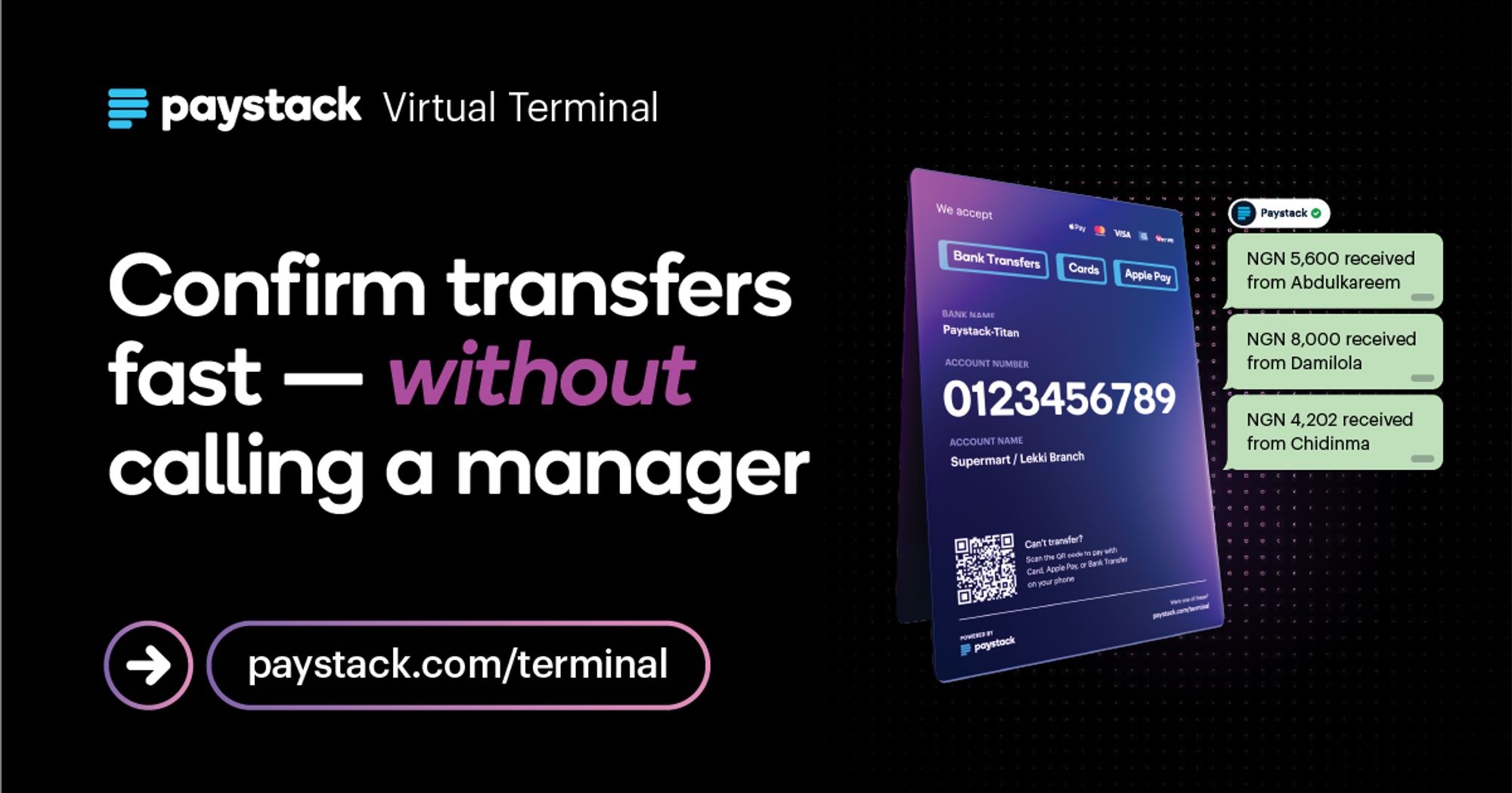

Good morning ☀️
Legend has it that if you open the spice cabinet of any well-meaning, chronically online Nigerian, you’re sure to find bottles of soy and oyster sauces. And even though soy sauces are traditionally used in East Asian cuisines, they’ve slowly influenced Nigerian plates…and food content creators are to blame thank.
In the first edition of our latest vertical, The Algorithm, we take you behind the scenes on how these creators have spent the past four years redefining the taste palettes of Nigerians.
Uber eyes Moove with $100 million investment
It feels like it was just last week we wrote to you about Nigerian fintech Moove raising $10 million to expand further into India.
Now, the company is mooving fast with an investment that could be worth 10x its last raise—and ⅓ of its total raise so far!
The news: Ride-hailing giant Uber is exploring a potential investment of up to $100 million in the Nigerian fintech which specialises in vehicle financing for drivers in the gig economy. This moove, if finalised, would significantly boost Moove’s valuation to $750 million, further solidifying its position as a major player in Africa’s burgeoning tech scene.
The potential investment, according to Bloomberg, is still currently under discussion, but it underscores Uber’s growing interest in deepening its presence in Africa’s booming ride-hailing market. In 2022, the platform recorded its 1 billionth-ride milestone on the continent.
While the company has invested in over 40 companies globally, its potential investment in Moove could mark its first in Africa.
Access payments with Moniepoint

You don’t have to take our word for it. Give it a shot like he did Click here to experience fast and reliable personal banking with Moniepoint.
Nigeria limits cash use for FX payments
Cash is no longer king in the Nigerian forex market.
In its latest attempt to save the naira from further depreciation against the greenback, Nigeria’s apex bank has set a $500 limit on the purchase and sales of the dollar by cash.
What this means is that if you want to buy or sell foreign currency exceeding $500 through a Bureau De Change (BDC) operator in Nigeria, you’ll need to use digital payment methods like bank transfers or online platforms. The new rule bars BDCs across the country from dealing with cash transactions above $500 for the purchase or sales of foreign currency.
The move is the latest in the cards of methods used by the apex bank in curtailing the naira’s depreciation. While the CBN has implemented various regulations for BDCs in the past, this particular approach is a novel and untested method.
This month, the CBN also introduced new tiers of licences for BDC operators in the country, increasing their share capital to ₦2 billion ($1.3 billion) and ₦500 million ($340 million) for Tier 1 and Tier 2 licenses respectively, way up from ₦35 million(~$24 million) previously charged for a general license. In addition to barring BDCs from engaging in street trading, the CBN also compelled a mandatory source of funds disclosure for individuals selling $10,000 or more to BDCs.
Compared to international practices, some might argue that the CBN’s limitation on cash transactions for foreign currency exchange is uncommon. While many many countries regulate BDCs and money laundering activities, switching to digital transactions at a $500 cap limit is brow-raising.
The blame game: The Nigerian government continues in its search for ways to bring the naira back on track. If Twitter chatter is to be believed, one of the ways it plans to do this is by cutting off BDCs whom the government has often blamed for its ailing currency and black market disparity.
Nigeria compenates customers of shuttered MFBs
In May of last year, Nigeria’s Central Bank (CBN) revoked the licences of 132 microfinance banks. The reasons the apex bank cited included inactivity, insolvency, failing to render returns, and a host of other stuff.
For the thousands of Nigerian customers across these apps, this meant they lost access to every single dime locked tightly in the MFBs.
Our reporting has now uncovered a new fact: the Nigerian Deposit Insurance Corporation (NDIC), the Nigerian agency that protects deposit banks, stepped in to offer some relief to the customers of the affected microfinance banks.
Here’s what you need to know: As per notices released in May and August 2023, depositors with proof of claims can receive up to ₦200,000 ($242 at the time) per account. Customers with larger deposits, however, will have to wait for the NDIC to liquidate the banks’ assets and distribute the remaining funds as “liquidation dividends.”
While banks like Eyowo Microfinance Bank have been applying to get their licences back, Eyowo restored interbank transfers througha partnership with Providus Bank in June 2023. This offered a glimmer of hope for its customers to gain access to their funds, but not for long, as the app became inaccessible weeks later.
It’s going to take a while: As compensation efforts continue, the fate of many banks hangs in the balance. While the NDIC is exploring alternatives like shareholder investment, success isn’t guaranteed. Liquidation looms for most affected banks, and while Nigerian corporate laws require that liquidation be completed in 12 months, the same Act also allows the process to exceed the given time as long as the public is notified.
Secure payment gateway for your business

Fincra’s payment gateway enables you to easily collect Naira payments as a business; you can collect payments in minutes through bank transfers, cards, virtual accounts and mobile money. Create a free account and start collecting NGN payments with Fincra.
FATF grey lists Kenya for the first time in 10 years
Despite Kenya’s pursuit for a higher rating after a review that deemed them “partially compliant” with the global standards on anti-money laundering and terrorism financing, the East African country has found itself on the Financial Action Task Force’s (FATF) grey list again.
This comes four months after Kenya became Eastern and Southern Africa’s anti-money laundering leader. The East African country landed on the FATF’s grey list for weak anti-money laundering controls, joining 23 other nations under heightened scrutiny.
The task force has asked Kenya to supervise crypto assets, improve the quality of financial intelligence and increase the prosecution of money laundering cases.
What’s an FATF grey list? It’s a list of countries with deficiencies in money laundering and terrorist financing. This means Kenya might be subjected to stricter financial scrutiny from the global economy, forcing critical changes to its financial system to reduce the risk of being a haven for dirty money.
With Kenya’s robust $20 billion crypto market, in early February 2024, the Blockchain Association of Kenya (BAK) introduced its first-ever Virtual Assets Service Provider (VASP) draft Bill, which proposes a comprehensive framework encompassing licensing, consumer protection, anti-money laundering, and a regulatory sandbox. However, its efforts didn’t reduce its prospects of joining the FATF’s grey list.
This isn’t Kenya’s first FATF rodeo. In 2010, the East African country was put on the grey list but was taken off the list in 2014 after the FATF review found that Kenya had made progress by introducing laws to identify and freeze terrorist financing. Now, the East African country joins South Africa, Cameroon, Namibia, and Nigeria on the grey list.
Accept fast in-person payments, at scale

Delight your customers by allowing frontline staff and sales agents confirm bank transfers instantly, via WhatsApp alerts. Learn more →
Cell C to pay outstanding spectrum bill
South African telecom Cell C says it is ready to pay its debts.
What debts? The mobile operator bought 10MHz of data bandwidth for R288 million (~$15 million) but has had trouble paying for it due to its current financial difficulties.
In January, Cell C considered downsizing its workforce to improve operational flexibility and reduce costs. This followed adjustments to senior management positions earlier in the year to align with a new organizational structure. Cell C’s customer base also witnessed a sharp decline, shrinking from approximately 2,600 in June 2022 to just 900 by September 2023. This represents a staggering 36% decrease in just 15 months.
In a bid to address its financial challenges, last year Cell C streamlined its operations by letting go of its costly radio access network—an expensive part of a telecoms network that connects end users— outsourcing it to Vodacom and MTN.
Blue Label Telecoms, Cell C’s largest shareholder also made capital injection into the company, to keep the company afloat. Now, the shareholder wants more and is eying a potential acquisition. Blue Label intends to increase its shares by 4.04% in the telecom which would bring its total stake in the company to 53.54%.
The World Wide Web3
Source:

|
Coin Name |
Current Value |
Day |
Month |
|---|---|---|---|
| $51,493 |
– 0.12% |
+ 23.04% |
|
| $3,101 |
+ 2.84% |
+ 36.36% |
|
|
$70.22 |
+ 3.28% |
+ 117.71% |
|
| $9.01 |
+ 0.37% |
+ 273.07% |
* Data as of 05:40 AM WAT, Febraury 26, 2024.

Experience the best rates and enjoy swift 6-24hrs delivery times. Elevate your business with OneLiquidity–get started today.
- Big Cabal Media – Social Media Intern, Senior Events Associate – Lagos, Nigeria
- Adeo – Marketing Personnel – Ghana (Remote)
- Flutterwave – Frontend Engineer – Nigeria
- Credpal – Mobile App Developer – Lagos, Nigeria
- Vodacom – Executive Head: Cybersecurity – South Africa (On-site)
- MRI Software – Data Analyst – South Africa (Hybrid)
- Fairmoney – Lead Product Designer – Lagos, Nigeria
There are more jobs on TechCabal’s job board. If you have job opportunities to share, please submit them at bit.ly/tcxjobs.
What else is happening in tech?
Written by: Mariam Muhammad & Faith Omoniyi
Edited by: Timi Odueso
Want more of TechCabal? Sign up for our insightful newsletters on the business and economy of tech in Africa.
- The Next Wave: futuristic analysis of the business of tech in Africa.
- Entering Tech: tech career insights and opportunities in your inbox every Wednesday at 3 PM WAT.
- In a Giffy: business decisions powered by data-driven insights and analysis you can trust.
- TC Scoops: breaking news from TechCabal
P:S If you’re often missing TC Daily in your inbox, check your Promotions folder and move any edition of TC Daily from “Promotions” to your “Main” or “Primary” folder and TC Daily will always come to you.





















